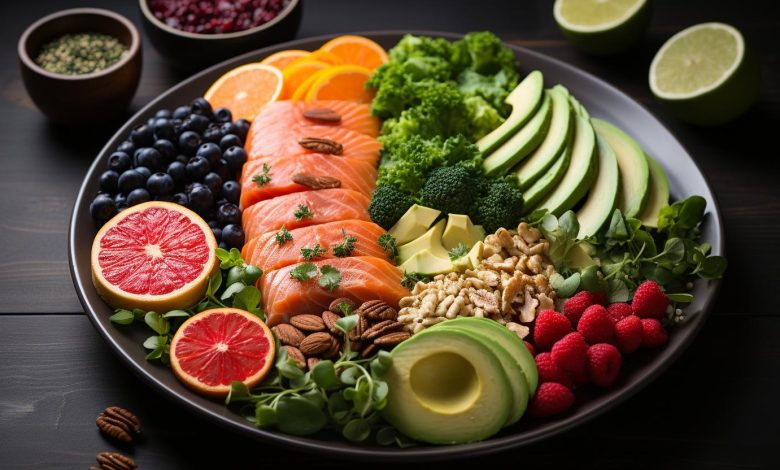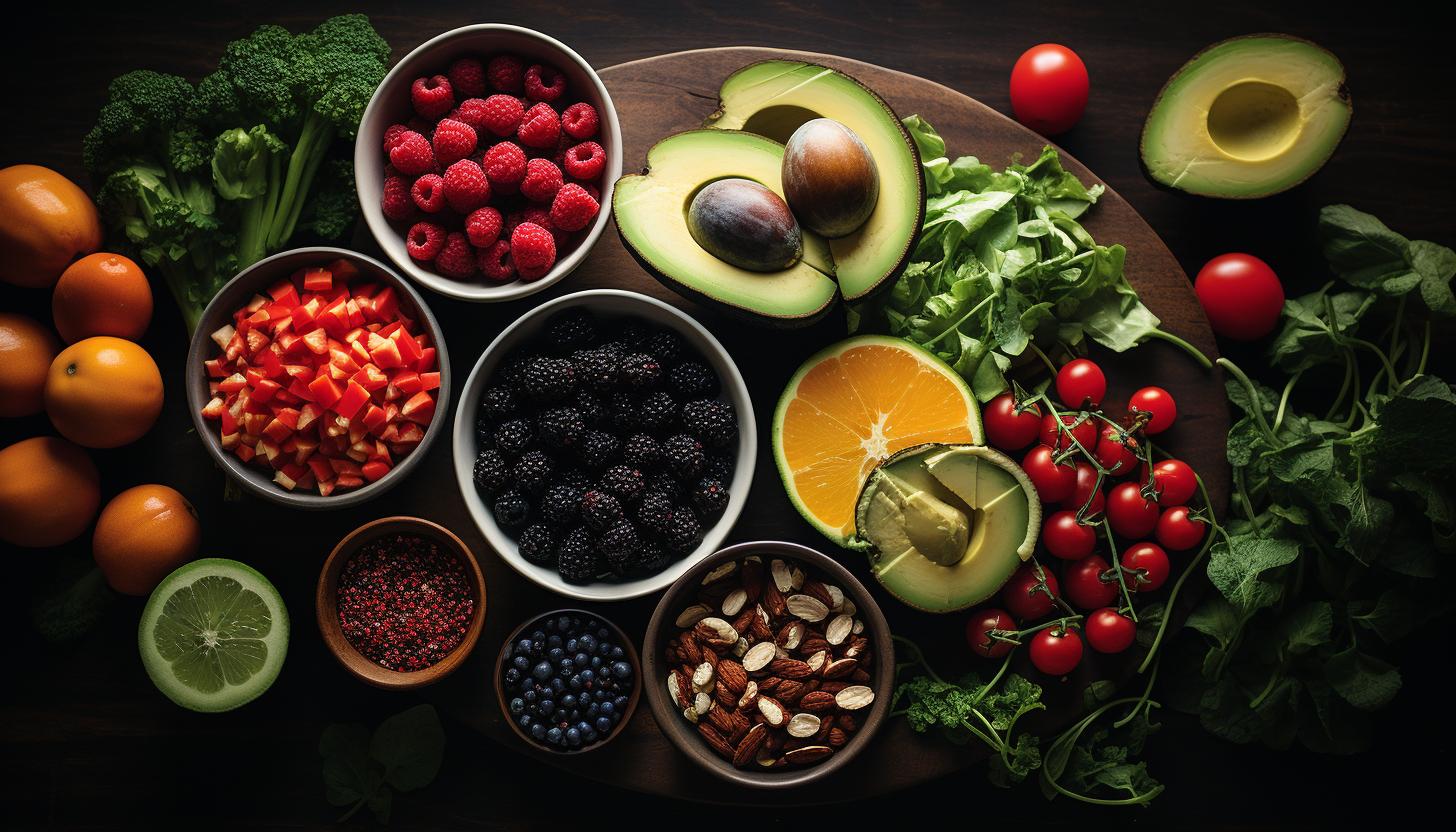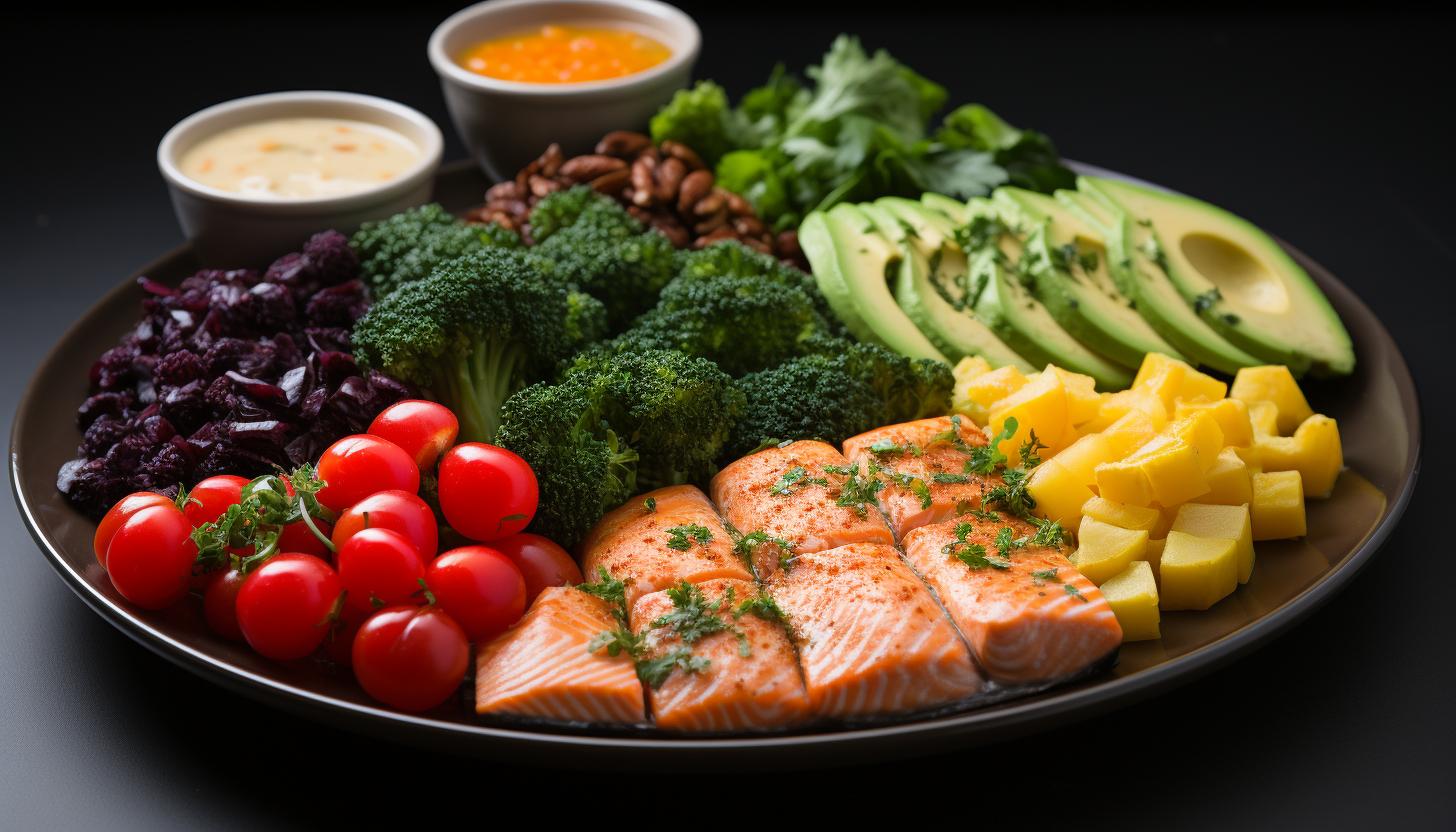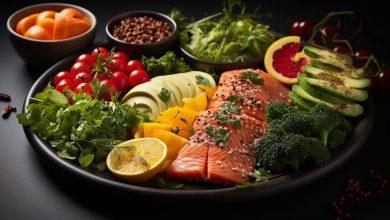Healthy Eating Habits for Sustainable Weight Management

Do you struggle with maintaining a healthy weight? Did you know that 95% of people who lose weight through dieting regain it within a few years? It’s time to break free from this cycle and adopt healthy eating habits for sustainable weight management.
In this article, we will explore evidence-based strategies that can help you achieve your goals. From portion control to incorporating whole foods into your diet, understanding macronutrients and micronutrients, practicing mindful eating, and effective meal planning – we’ve got you covered!
The Importance of Portion Control

Portion control is crucial for maintaining a healthy weight. It helps you manage your calorie intake and prevents overeating, which can lead to weight gain.
One common challenge when it comes to portion control is emotional eating. Many people turn to food as a way to cope with stress, sadness, or boredom. However, this can be dangerous as it often leads to consuming excessive amounts of unhealthy foods.
To overcome food cravings and practice portion control effectively, there are several strategies you can try. Firstly, it’s important to identify your triggers for emotional eating. Are you more likely to reach for junk food when you’re feeling stressed? Once you’ve identified these triggers, find alternative ways to deal with your emotions such as going for a walk or talking with a friend.
Another tip is to listen to your body’s hunger cues. Eat slowly and pay attention to how full you feel. Stop eating when you’re satisfied, not stuffed.
Additionally, using smaller plates and bowls can help trick your brain into thinking that you’re consuming more than you actually are. This visual illusion can help prevent overeating.
Incorporating Whole Foods Into Your Diet

Including whole foods in your diet is a great way to improve your overall health and reach your weight goals. Whole foods refer to unprocessed or minimally processed foods that are as close to their natural state as possible. These foods are rich in nutrients, such as vitamins, minerals, and antioxidants, which are essential for optimal health.
One of the benefits of incorporating whole foods into your diet is that they are nutrient-dense. This means that they provide a high amount of nutrients relative to their calorie content. By including nutrient-dense recipes in your meal plan, you can ensure that you’re getting all the necessary nutrients without consuming excessive calories.
Additionally, choosing organic whole foods can have several benefits. Organic farming practices prohibit the use of synthetic pesticides and fertilizers, resulting in produce with fewer chemical residues. Studies have shown that organic fruits and vegetables may contain higher levels of certain nutrients compared to conventionally grown ones.
To incorporate more whole foods into your diet, focus on consuming a variety of fruits, vegetables, whole grains, lean proteins (such as poultry or fish), nuts, seeds, and legumes. Try experimenting with different recipes that feature these ingredients to make healthy eating enjoyable and sustainable.
Remember that small changes over time can lead to significant improvements in your overall health and help you achieve your weight goals. So start by making simple swaps like replacing processed snacks with fresh fruits or swapping refined grains for whole grain alternatives.
Understanding Macronutrients and Micronutrients

Understanding the difference between macronutrients and micronutrients is essential for optimizing your nutrition. Macronutrients are the nutrients that your body needs in large quantities, such as carbohydrates, proteins, and fats. These provide energy and are necessary for growth, repair, and maintaining bodily functions.
Micronutrients, on the other hand, are needed in smaller amounts but are equally important. They include vitamins and minerals that play crucial roles in supporting immune function, metabolism, and overall health.
To maintain a balanced diet, it’s important to incorporate both macronutrients and micronutrients into your meals. Carbohydrates should come from whole grains, fruits, and vegetables to provide fiber and sustained energy. Lean proteins like chicken or fish supply essential amino acids for muscle repair. Healthy fats found in avocados or nuts help with nutrient absorption.
When it comes to nutrient absorption, both macronutrients and micronutrients work together synergistically. For example, vitamin C enhances iron absorption from plant-based sources like spinach or beans.
Transitioning into the next section about mindful eating in weight management: Now that you understand the importance of macronutrients and micronutrients for optimal nutrition, let’s explore how mindful eating can support sustainable weight management.
The Role of Mindful Eating in Weight Management

To successfully manage your weight, it’s crucial to develop a mindful approach to how you nourish your body. Mindful eating techniques can play a significant role in weight management and maintaining a healthy lifestyle. Mindful eating involves paying attention to the present moment and being aware of your thoughts, feelings, and physical sensations while eating.
One of the key benefits of mindful eating is its impact on weight loss. By practicing mindfulness during meals, you become more attuned to your body’s hunger and fullness cues. This helps prevent overeating and promotes portion control, leading to a reduction in calorie intake. Studies have shown that individuals who practice mindful eating tend to have lower body mass indexes (BMIs) compared to those who do not.
Mindful eating also encourages better food choices. When you are fully present while eating, you are more likely to make conscious decisions about what you put into your body. You become aware of the nutritional value of foods and how they affect your overall health. This awareness can lead to healthier food choices such as opting for whole grains, lean proteins, fruits, vegetables, and limiting processed foods high in added sugars and unhealthy fats.
In addition to weight management, mindful eating has been linked to improved digestion and increased satisfaction with meals. By slowing down and savoring each bite, you give your digestive system time to process food properly. This can help reduce digestive issues like bloating or discomfort after meals.
Effective Strategies for Meal Planning and Prepping

Effective strategies for meal planning and prepping can simplify your daily food choices, making it easier to nourish your body with nutritious meals. By taking the time to plan ahead and prepare your meals in advance, you can save valuable time during busy weekdays while ensuring that you have healthy options readily available.
Here are some tips to help streamline your meal prep routine:
– Time saving meal prep:
– Batch cook: Prepare larger quantities of ingredients or dishes that can be portioned out and stored for future meals.
– Utilize slow cookers or Instant Pots: These appliances allow you to set and forget, saving you time on cooking.
– Healthy snack options:
– Pre-cut fruits and vegetables: Having these ready-to-eat snacks readily available will make it easier to choose them over less nutritious options.
– Homemade protein bars or energy balls: These portable snacks are packed with nutrients, providing a convenient option when hunger strikes.
Conclusion
In conclusion, maintaining healthy eating habits is essential for sustainable weight management. By practicing portion control and incorporating whole foods into your diet, you can ensure a balanced intake of nutrients.
Understanding the importance of macronutrients and micronutrients will help you make informed choices about what to eat. Additionally, mindful eating plays a crucial role in managing weight effectively by promoting conscious awareness of hunger and fullness cues.
Lastly, meal planning and prepping are effective strategies that can save time and support your commitment to healthy eating. Remember the old adage: “You are what you eat.” So choose wisely and nourish your body for long-term health and well-being.






